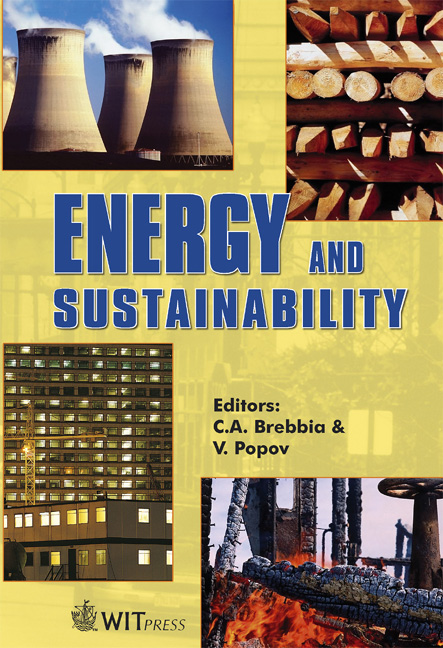Embodied Transport Energy Analysis Of Imported Wood Pellets
Price
Free (open access)
Transaction
Volume
105
Pages
7
Published
2007
Size
246 kb
Paper DOI
10.2495/ESUS070301
Copyright
WIT Press
Author(s)
A. Duffy & M. Conroy
Abstract
The Irish Government has recently introduced a series of capital grants to boost the uptake of domestic wood-pellet technologies in order to reduce greenhouse gas emissions. These have proved popular and have encouraged a significant number of people to switch from gas- and oil-fired boilers to the cleaner fuel. The demand for wood-pellets has, however, greatly exceeded the national capacity for production. The market for wood pellets elsewhere in Europe is also tight and, consequently, a large proportion of Irish pellets are sourced in Canada. This presents possible problems: the carbon emissions associated with longdistance transport may significantly offset the expected environmental benefits; and the resulting need to purchase carbon credits may impact on the Irish Government’s rationale for promoting the technology. This paper describes a process-based embodied energy analysis which indicates that the difference in transport embodied energy and CO2 emissions between imported and domestically produced wood pellets is up to 1,403MJ/tonne and 108kg/tonne respectively. Imported pellets have up to four times more embodied energy than those that are domestically-produced. Although this erodes their environmental credentials, it is still a significant improvement when compared to displaced conventional fuels; for example, it is equivalent to 22% of natural gas CO2 emissions. An economic analysis of present value indicates that the short-term cost to the Irish exchequer of these increased emissions is small. Keywords: wood pellets, carbon dioxide, transport, embodied energy, cost, policy.
Keywords
wood pellets, carbon dioxide, transport, embodied energy, cost, policy.





